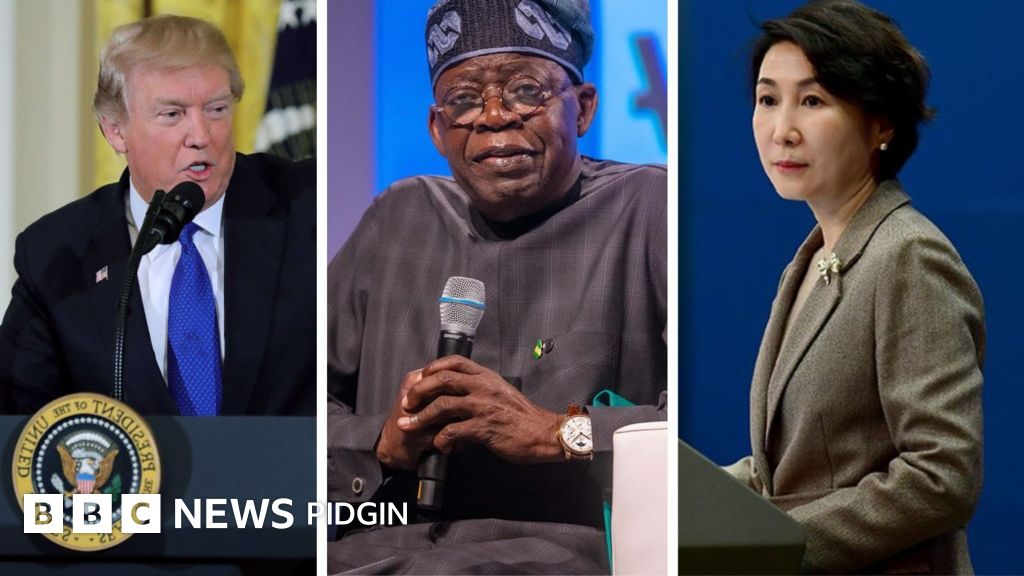China Responds to US Sanctions Threats Over Nigeria’s Religious Issues
On November 4, 2025, tensions escalated as China firmly condemned threats from the United States regarding sanctions or military actions against Nigeria. This reaction emerges in light of allegations surrounding violence against Christian communities within the country, prompting a broad international discussion on religious freedoms and geopolitics.
China’s Position on US Allegations
During a press conference, Chinese Foreign Ministry spokesperson Mao Ning articulated China’s stance against what it views as interference in Nigeria’s internal affairs. The Chinese government expressed unwavering support for the Nigerian administration, emphasizing its commitment to maintaining sovereignty against external pressures. Specifically, Mao stated, “We oppose any country’s interference in other nations’ internal affairs under the pretext of religion and human rights.” This highlights China’s broader diplomatic approach to shield its allies against perceived Western hegemony.
The US Declaration of Concern
On October 31, President Donald Trump labeled Nigeria as a “country of particular concern,” citing alarming reports of persecution against Christian communities. This designation indicated a potential shift in US foreign policy toward West Africa, particularly regarding religious freedoms. Trump’s statement raised eyebrows, suggesting that Christianity in Nigeria is facing an “existential threat,” prompting calls for investigations into these claims.
Congressman Riley M. Moore’s Response
In response to the escalating rhetoric, US Congressman Riley M. Moore from West Virginia weighed in, emphasizing that China has no authority to dictate America’s foreign policies. Moore responded to the Chinese comments, noting, “Communist autocracy… no go lecture dem,” clearly referring to China’s own human rights record. He voiced strong sentiments in defense of persecuted Christians worldwide, claiming that the US has an obligation to protect their rights.
ECOWAS Weighs In
The Economic Commission of West African States (ECOWAS) also entered the conversation, rejecting claims of ongoing Christian genocide in Nigeria. In a public statement, the organization warned against what it called “false and dangerous claims,” asserting that terrorist groups target civilians of all faiths. This assertion aims to clarify the violent dynamics present in Nigeria, emphasizing that the threat affects both Muslim and Christian communities indiscriminately, rather than being targeted at a specific religious group.
Understanding the Situation on the Ground
Even as international attention intensifies, the situation in Nigeria remains complex. Religious and ethnic tensions have deep roots, particularly in regions like the northeast, where terrorist groups like Boko Haram have operated for over a decade. These groups have perpetuated a cycle of violence that claims the lives of both Christians and Muslims alike. The recent reports of attacks and communal strife, particularly in states like Plateau and Benue, underscore the multifaceted nature of the conflict.
Defining Genocide: A Legal Perspective
The term “genocide,” coined by Jewish-Polish lawyer Raphael Lemkin during World War II, is defined by specific acts aimed at destroying a particular group. The United Nations Convention on the Prevention and Punishment of the Crime of Genocide, adopted in 1948, outlines these acts, including killings and causing serious harm to group members, among others. Given the gravity of the term, its application requires careful consideration of the evidence available.
The Broader Implications
As diplomatic tensions flare, both the United States and China are navigating a complex landscape of international relations, human rights advocacy, and geopolitical strategy. Nigeria, positioned at the center of this discourse, is caught in the escalatory rhetoric between these two global powers while grappling with its internal challenges of violence and religious unrest.
A Pivotal Moment for Nigeria
This situation represents a critical juncture for Nigeria, emphasizing the importance of maintaining stability and fostering interfaith dialogue amidst external pressures. The discourse surrounding religious freedoms and government accountability will likely continue to evolve, requiring careful attention from both national and international observers.



